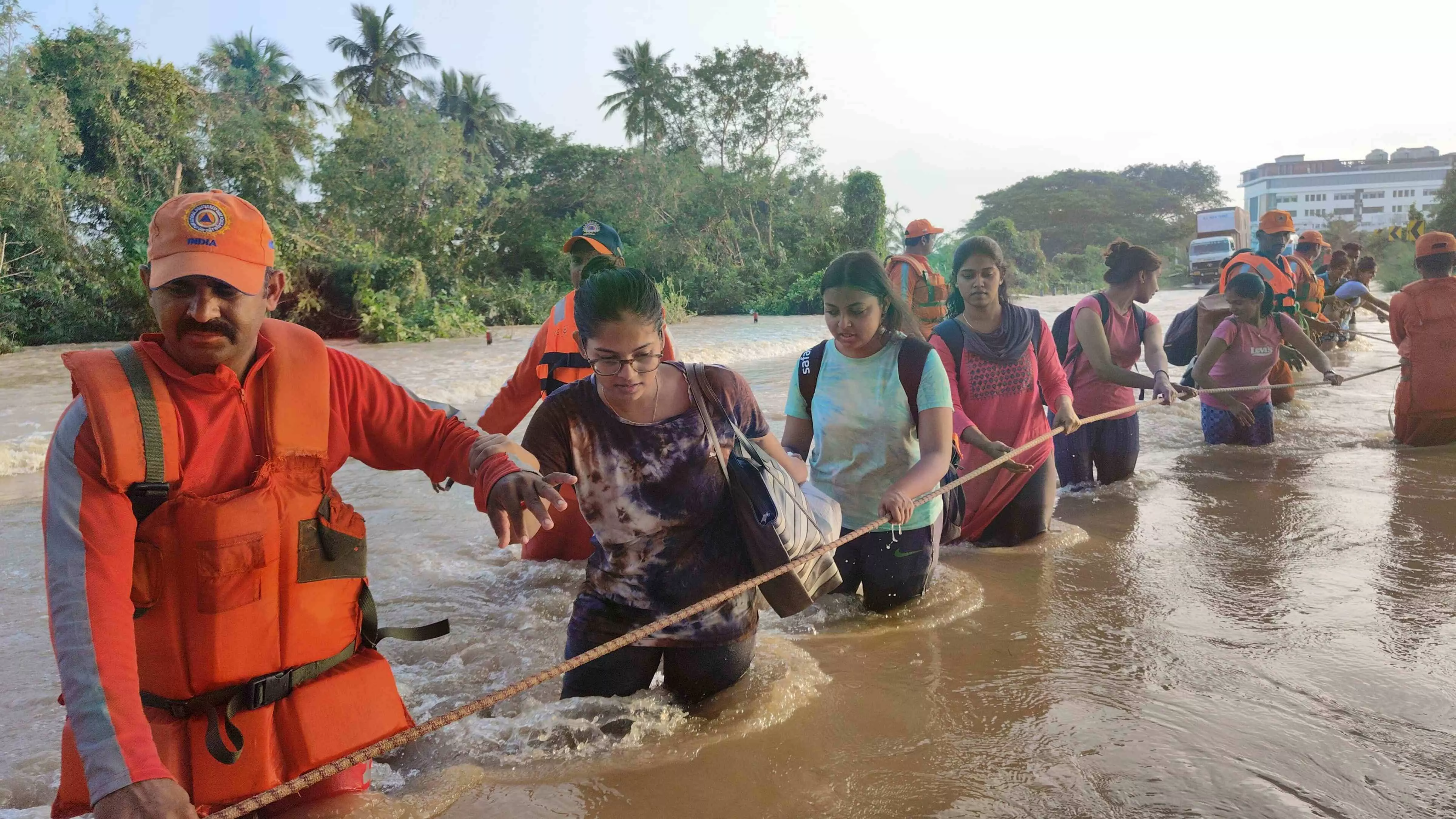Recurring chaos

Cyclone Fengal has brought Karnataka, Tamil Nadu and other coastal states to their knees, highlighting just how unprepared Indian states are for extreme weather. In Bengaluru, days of heavy rain have thrown the city into chaos. Waterlogged roads caused massive traffic jams, leaving commuters stuck for hours on major routes like Mysuru Road and NICE Road. Tamil Nadu, at the same time, has borne the brunt of the cyclone significantly. Over 69 lakh families and 15 million people are reported to have been affected. Torrential rains flooded the South Pennai river, submerged over 2.21 lakh hectares of farmland, and left countless homes damaged. Tragically, several lives are reported to have been lost in the affected regions. The Tamil Nadu government has announced relief measures, ranging from crop compensation to financial aid for affected families, while also seeking Rs 2,000 crore in immediate assistance from the Centre. The central government, on its part, has assured full support to the crisis-stricken state. It goes without saying that coordination is the best recipe for fighting against any crisis.
Notably, this is not the first time that the affected cities and towns have seen such devastation, and sadly, it won’t be the last. Bengaluru’s flooding isn’t a new problem—it happens every monsoon, yet the city remains unprepared. Poor drainage, haphazard urban growth, and neglect of water bodies turn heavy rain into a disaster every single time. Tamil Nadu’s frequent cyclones, too, should have taught lessons in preparedness, but the damage from Cyclone Fengal shows that preventive measures still fall short. With climate change intensifying natural disasters, extreme weather is becoming the norm. The interrelation between increased intensity and frequency of natural disasters and climate change is now crystal clear. Credible international reports and agencies have proved this point beyond doubt. Now is the time to accept this fact, and act on it. Studies suggest that the southern peninsula in India faces at least four cyclonic storms or depressions each season. Yet, the response continues to be reactive—focused on relief instead of long-term solutions.
To prevent future disasters, there is a need to act urgently. Bengaluru must prioritise better drainage systems and stricter urban planning. Tamil Nadu must strengthen river bunds, clear silt from water bodies, and crack down on encroachments. The government should also invest in climate-resilient farming and flood-proof infrastructure for rural areas. However, given the universal impact of climate change, the discussion cannot be limited to specific states. All the states of India, depending upon their clime and vulnerabilities, must institutionalise their own safeguards. Relief efforts, while important, only address the aftermath. True resilience requires long-term planning, funding, and a shift in mindset—from managing disasters to preventing them. The PM-CARES Fund and other central aid programs should focus on rebuilding infrastructure to withstand such events. But this isn’t just the government’s responsibility. Citizens also have a role to play—whether it’s demanding accountability, volunteering during crises, or adopting more sustainable practices. Cyclone Fengal is a reminder that we cannot afford to keep ignoring these warning signs. Each disaster shows us where we’re failing. The question is, will we finally start addressing these failures, or will we continue to repeat the same mistakes? The time to act is now, before the next storm strikes.



